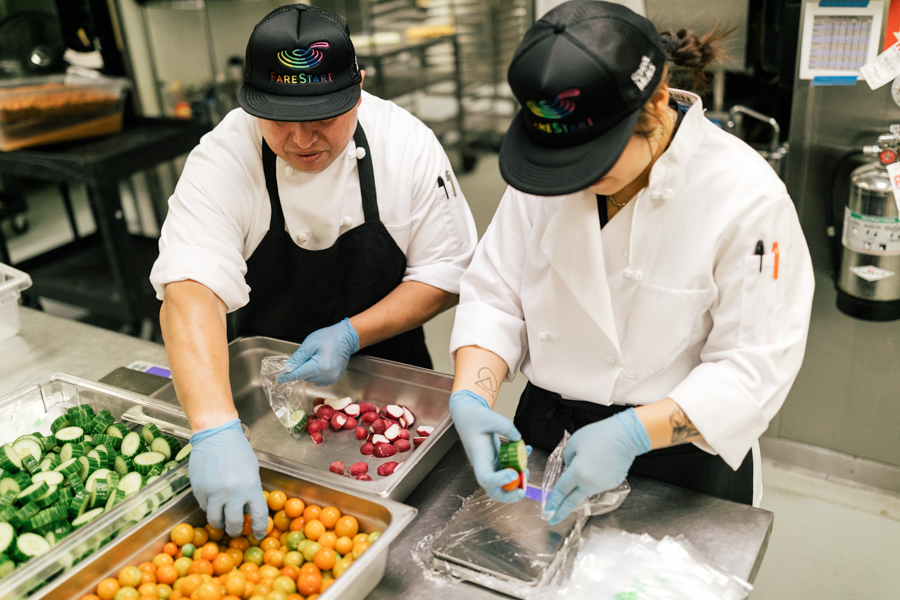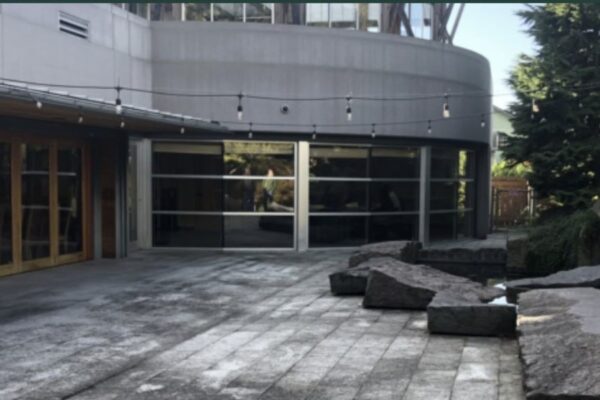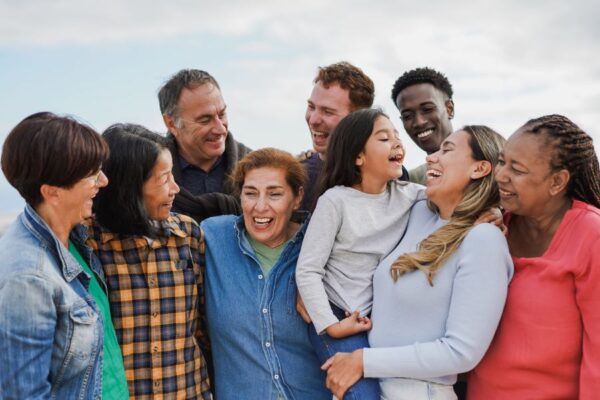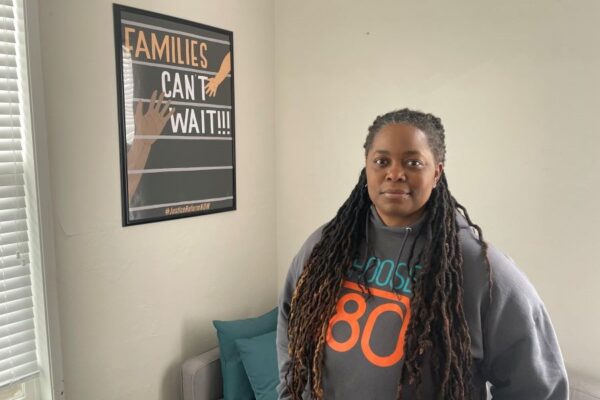Giving United Way’s Streets to Home Program a Broader Fair Start
United Way of King County works to prevent homelessness by partnering with groups like FareStart, a Seattle-based restaurant training program that for years has been known for both providing shelter and churning out chefs.
Yet as the hospitality industry has been hampered during the COVID-19 pandemic, FareStart officials decided to expand their model. Now, FareStart enrollees can opt for virtual skills training that prepares them for the fields of their choice, everything from logistics to transportation to healthcare. FareStart’s new Online Learning, Empowerment & Employment Pathway has resulted in more FareStart enrollees sticking with the program and emerging better prepared for success.
What’s more, FareStart changed its compensation model for enrollees from a work stipend to a $20/hour salary—more than both the state and city of Seattle average—for a 24-hour work week.
United Way partners with FareStart via its Streets to Home program, which works to reduce homelessness in King County by providing people with shelter as well as employment to remain housed. Over the past year alone, United Way has worked with nearly a dozen service providers via Streets to Home to help 540 families move from the streets or shelter to permanent housing. About 95 percent of those who received housing from Streets to Home were still housed six months later. And nearly 72 percent of those served were Black, Indigenous or other people of color.
“United Way supports FareStart programming [for Streets to Home] because we believe in not only helping people find housing but giving them the tools needed for employment that creates an income to maintain housing,” said Wayne Wilson, United Way community impact manager, homelessness and housing.
United Way supports FareStart programming [for Streets to Home] because we believe in not only helping people find housing but giving them the tools needed for employment that creates an income to maintain housing,
Wayne Wilson, United Way community impact manager, homelessness and housing.
Wilson added that FareStart is unique in that everyone who is admitted into its program receives some type of basic housing, including enhanced shelter. “With that,” Wilson added, “people who are part of the program, which United Way funds, have housing employment resources while they are in the program.”
FareStart chief program officer Carlin Llorente said the program is already reaping benefits from changing its model. “Because students are receiving services and the 24-hours a week of paid work experience,” Llorente said, “they are able to build up savings, build up a bank account and work on their financial self-management skills, because their relative expenses compared to their income is organized in a reasonable way for the first time.”
Llorente said that FareStart’s changes don’t mean it will abandon its aim to prepare people for the hospitality industry or make good food. In fact, since the pandemic, the organization has served more than 5.5 million meals to ensure that people in need have healthy, nutritious food.
“But it was a challenge to figure out how to continue training and doing workforce development,” Llorente said. “We tried to do an entirely virtual culinary program, where people would receive boxes of vegetables and knives and cutting boards and people would try do it over Zoom. That didn’t go well. The epiphany, though, was after that pilot the team realized that the core of FareStart’s program was creating a community where people felt belonging and trust and could begin to build confidence and skills based on their values. We realized that that set of activities can be done over Zoom.
FareStart’s Online Learning, Empowerment & Employment Pathway has enrolled 94 students since its inception, and 65 have received job placements and promotions.
“We created a virtual program that focused on self-empowerment and core foundational job skills and didn’t [require] the hard skills of knife work and kitchen protocols,” Llorente added. “What we learned in that pilot was that just those experiences and that community was able to help people find and sustain employment of their choosing.”
FareStart credits partners like United Way that help it become part of the solution to ending poverty, homelessness, hunger and food insecurity. “We want to be part of the solution to create a robust and inclusive food development system that is truly person-centered and driven by justice and anti-racist values,” said Llorente. “On all those fronts, partners like United Way are essential to everything FareStart does.”





Comments